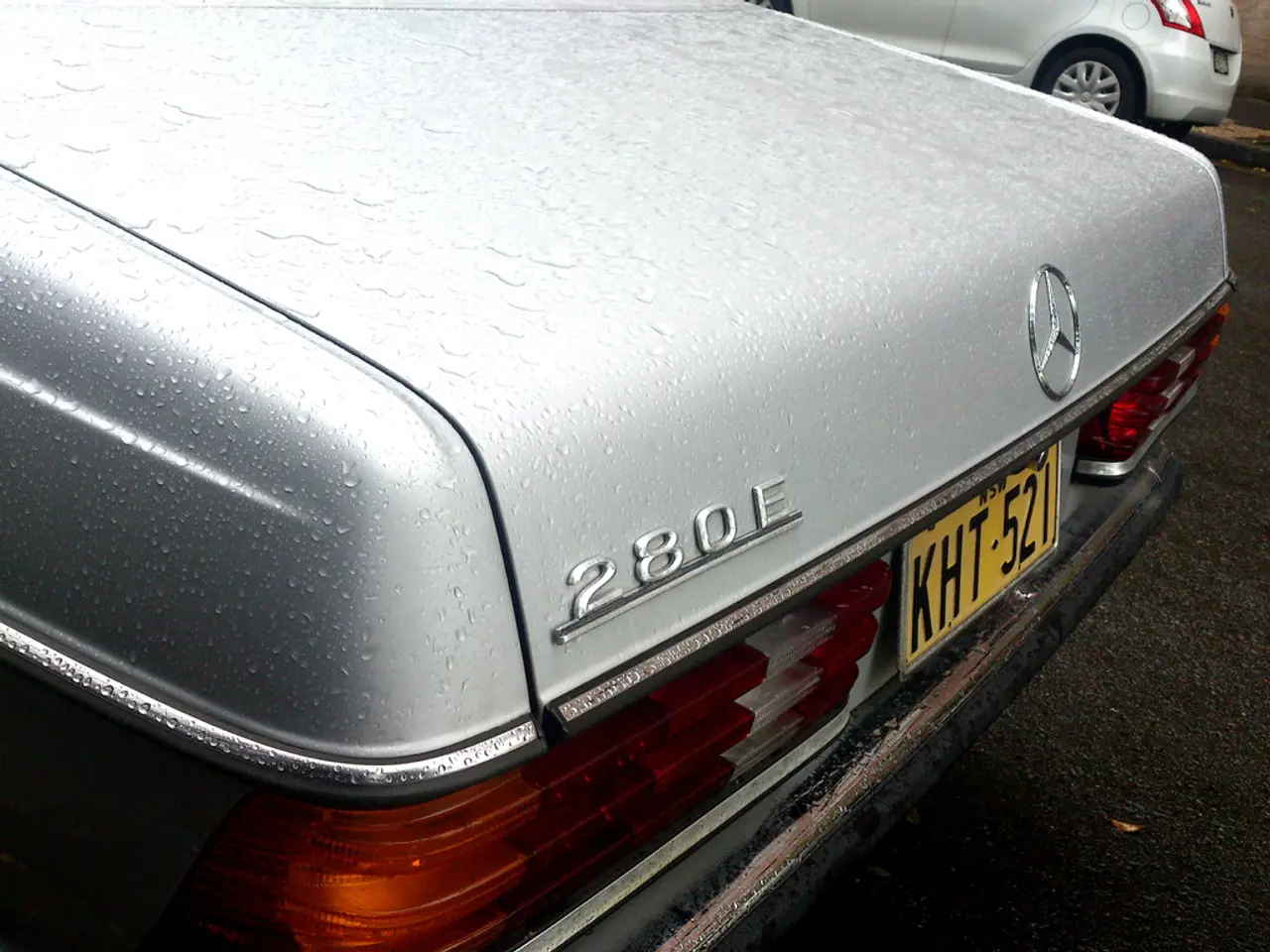Europe is hitting a wall, according to Mercedes-Benz CEO Källenius
In the face of a challenging European car market and the impending 2035 ban on new internal combustion engine (ICE) cars, Mercedes-Benz is making a bold move to electrification. The luxury automaker is planning a significant product offensive, aiming to revive sales and adapt to tightening emissions regulations and shifting consumer demand.
At the heart of Mercedes-Benz's strategy is a commitment to electrification. The company aims to ensure that at least 50% of its vehicle sales will be fully electric or plug-in hybrid by 2030, positioning itself to comply with stricter emission standards and the planned ICE ban.
A key part of this strategy is a major electric vehicle (EV) rollout planned for 2026, which is described as the biggest product launch in the company's history. Eighteen new models, many of which will be fully electric, are set to be launched, including two compact electric crossovers likely to be EV versions of the GLA and GLB, aimed at urban drivers.
Mercedes-Benz is also focusing on its core segments. For mid-range models like the C-Class and GLC, the company is adopting a dual-track approach, offering facelifts for combustion versions alongside fully electric variants. The C-Class EV is a notable addition, expected to offer improved range and performance. By 2027, Mercedes will introduce a dedicated electric platform model in the core segment, signaling a deeper shift to EVs.
The new electric GLC, set to debut with the 2026 model, will feature advanced 800-volt architecture and a WLTP range exceeding 400 miles. Mercedes is aligning EV design closer to its ICE models to create a unified brand image, moving away from the previously more aerodynamic EQ-series style.
Mercedes-Benz CEO Ola Källenius has expressed concerns about the EU's 2035 ICE ban, indicating the strategic urgency to adapt and lead through this transition. Källenius has also warned that Europe risks losing the economic strength of its key industry if smarter steering through incentives such as favorable charging prices and tax advantages are not implemented.
Despite the challenges, Mercedes-Benz remains one of the most profitable manufacturers in the world, with a net liquidity of over 30 billion euros. The company will not participate in the price war at any cost and is focusing its efforts on closing the gap in electric vehicles, with electric versions of the GLC and C-Class to be introduced.
The focus of this product offensive is expected to be reflected in the company's financial statements by 2027 at the latest. With over 30 new vehicles set to be launched between 2025 and 2028, Mercedes-Benz is indeed going on the offensive, aiming to secure its position in the zero-emission future.
[1] https://www.autonews.com/electric-vehicles/mercedes-benz-aims-50-electric-sales-2030 [2] https://www.autocar.co.uk/business/industry/mercedes-benz-ceo-says-eu-2035-ban-could-threaten-european-auto-industry [3] https://www.reuters.com/business/autos-transportation/mercedes-benz-to-launch-18-new-models-in-2026-to-boost-electric-drive-2021-09-08/ [4] https://www.autocar.co.uk/business/industry/mercedes-benz-faces-tough-times-china-with-ceo-olaf-kallenius-calling-it-darwinian-competition [5] https://www.autocar.co.uk/electric-vehicles/mercedes-benz-electric-glc-to-feature-800v-architecture-and-400-mile-range
Note: This article is intended to provide factual information about Mercedes-Benz's electrification strategy and is not intended as investment advice.
- Mercedes-Benz's electrification strategy is a significant business move, aimed at ensuring that at least half of its vehicle sales will be electric or plug-in hybrid by 2030, a shift that aligns with tightening emissions regulations and the impending 2035 ban on new internal combustion engine cars in Europe.
- As part of this strategy, the luxury automaker is planning a major product offensive, with 30 new electric and plug-in hybrid vehicles set to be launched between 2025 and 2028 in the automotive industry, seeking to revive sales and comply with stricter emission standards.
- Consequently, Mercedes-Benz is expected to make significant investments in the finance sector, particularly in the development of electric vehicle technology, as the company positions itself to lead in the zero-emission future.




